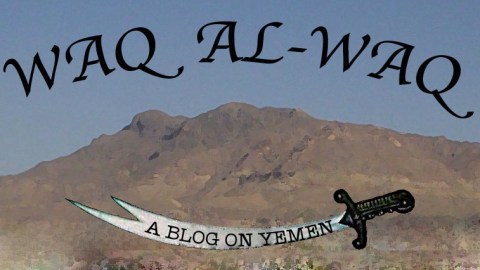Knowing what you’re doing

For the past several years I have been arguing that the US has to do a better job of framing the war against al-Qaeda in Yemen. The war should never be portrayed as the US against al-Qaeda in Yemen – that is a war the US can’t win. But unfortunately this is what is happening.
Instead, I’ve argued, this has to be seen as Yemen against al-Qaeda with the US assisting the Yemeni government.
There are concrete steps the US can take to help with this process.
For instance, I complained back in 2008 and 2009 that very few prominent clerics in Yemen were speaking out publicly against al-Qaeda, which essentially ceded the public discourse to the terrorist organization.
That is now starting to change. Yesterday, al-Sharq al-Awsat ran a story (Ar.) about how the former governor of Abyan, Ahmad al-Maysari, has requested that the ulema of Yemen produce a fatwa condemning Ansar al-Shariah.
His request came days after Shaykh Abd al-Majid al-Zindani gave an interview to Akhbar al-Yawm in which he criticized Ansar al-Shariah (Ar.) and said it was not permissible to kill Yemen’s soldiers.
There are also more anecdotal stories and reports of preachers condemning Ansar al-Shariah and al-Qaeda – all of this is incredibly important and long overdue.
So what can the US do?
To start, precision is important. The US has to be clear about who it is combating in Yemen. Just because the US doesn’t like an Islamist does not mean that he is a member al-Qaeda.
The most obvious case of this is Abd al-Majid al-Zindani. In 2004, the US named him a “specially designated global terrorist” and the UN quickly followed, adding Zindani to its own terrorist list. This was a mistake.
Zindani is no friend of the US, but neither is he a member of al-Qaeda. And treating him on par with Nasir al-Wihayshi, Qasim al-Raymi, Said al-Shihri or any of the other leaders of AQAP in Yemen only muddies the waters in Yemen and leads to wild speculation about US designs on the country and in the past has given Zindani little motivation to speak out against al-Qaeda.
The US is fighting AQAP in Yemen not Islamists in Yemen. But still the US ambassador to Yemen continues to complain about Zindani.
One of the things that worries me most about the proposed “signature strikes” that the CIA reportedly requested is the lack of precision in targeting. I worry that the US will hit the wrong people – as it so often has in the past – and end up creating more enemies than it kills. I worry about the same lack of precision in keeping Zindani on the “specially designated global terrorist” list.
Instead one concrete step the US should take is to remove Zindani from the terrorist list. This would do two things. First, it would show that there is a way off the list and that the US is not interested in combating everyone it dislikes. Like it or not, Zindani is part of the political landscape in Yemen in a way AQAP is not. Second, it would likely free Zindani up to be even more outspoken in his condemnation of AQAP and Ansar al-Shariah.
Zindani is never going to like the US. But he doesn’t have to. He only needs to realize and speak out publicly against al-Qaeda and a jihad in Yemen – and removing him from the list would give him more space to do exactly that.
The US can’t beat AQAP on its own in Yemen. Indeed, if it continues to try as it has been in recent years it will only exacerbate the problem. Sometimes, the US has to be smart enough to simply get out of the way.





